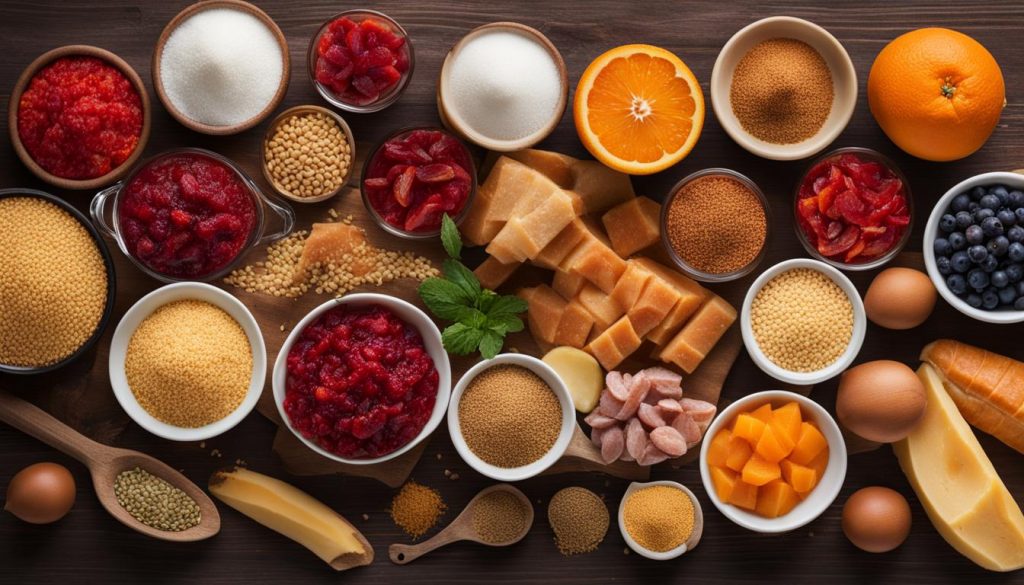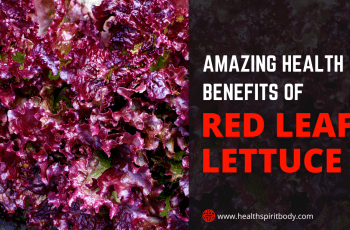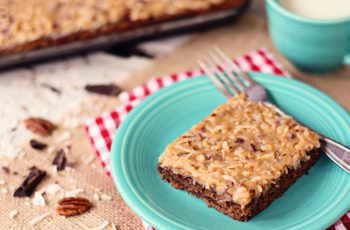Hey there! It’s me, your gut, here to chat about an important topic — gut inflammation. Did you know that the foods you eat can play a significant role in triggering inflammation in your gut? It’s true! Making healthy dietary choices is essential for maintaining optimal gut health. So, let’s dive in and explore the foods that cause gut inflammation.
Gut inflammation can lead to a range of digestive issues and even chronic diseases, so it’s crucial to be aware of the foods that can contribute to this problem. By avoiding these inflammation-causing foods, you can support a healthier gut and overall well-being.
Foods That Cause Gut Inflammation
- Unhealthy dietary choices can lead to gut inflammation and various digestive issues.
- Processed and high-sugar foods, as well as those rich in saturated and trans fats, are commonly associated with promoting inflammation.
- A diet rich in fruits, vegetables, whole grains, lean proteins, and healthy fats has been shown to have anti-inflammatory properties and promote gut health.
- Foods like red meat, processed meats, refined grains, sugary snacks and drinks, fried foods, and alcohol can promote gut inflammation and should be consumed in moderation or avoided altogether.
- Inflammatory foods contain ingredients that can directly activate inflammatory processes in the body and disrupt the balance of essential fatty acids.
Now that you know the foods to be cautious about, it’s time to take control of your gut health. Stay tuned for more insights on how your diet can impact inflammation and discover ways to adopt an anti-inflammatory diet for a happier, healthier gut!
Foods to Avoid for Gut Inflammation
- Red meat and processed meats: These meats are often high in saturated fats and can promote inflammation in the gut.
- Refined grains: Foods like white bread and pasta can cause gut inflammation due to their high glycemic index and lack of fiber.
- Snacks high in added sugars and unhealthy fats: Foods like packaged cookies, chips, and sweets can contribute to gut inflammation.
- Sugary drinks: Carbonated beverages and fruit juices with added sugars can disrupt gut health and promote inflammation.
- Fried foods: Deep-fried foods, such as french fries and fried chicken, are high in unhealthy fats that can trigger gut inflammation.
In addition to these inflammatory foods, it’s important to be mindful of alcohol consumption. Alcohol can contribute to gut inflammation, especially when combined with the aforementioned inflammatory foods.
By avoiding or limiting the intake of these foods and making healthier dietary choices, individuals can reduce gut inflammation and support better gut health.
The Link Between Diet and Inflammation
When it comes to gut health and inflammation, the link between diet and inflammation cannot be overstated. The foods we consume play a crucial role in either triggering or reducing inflammation in the gut. Making poor diet choices can lead to increased inflammation levels in the gut, while opting for a gut-friendly diet can promote gut healing and reduce inflammation.
Inflammation in the gut is commonly associated with processed and high-sugar foods, which are known to promote inflammation. These types of foods are often rich in saturated and trans fats, which can further exacerbate inflammatory processes in the body. Consuming an excess of such foods can disrupt the delicate balance of the gut microbiome, leading to chronic inflammation. This, in turn, can contribute to various digestive issues and chronic diseases.
On the other hand, adopting a diet rich in gut-friendly foods can have a significant impact on reducing inflammation in the gut. Fruits and vegetables are packed with vitamins, minerals, and antioxidants, which have shown to have anti-inflammatory properties. Including whole grains, lean proteins, and healthy fats, such as those found in nuts and fatty fish, can also contribute to a gut-healing diet.
By choosing gut healing foods and avoiding inflammation-causing foods, individuals can support their gut health and reduce the risk of chronic inflammation-related conditions. When planning meals, focus on incorporating a variety of colorful fruits and vegetables, whole grains, lean proteins, and healthy fats. Remember, small dietary changes can make a big difference in promoting a healthy gut and overall well-being.
Examples of Gut-Friendly Foods:
- Fruits: Berries, citrus fruits, apples, and bananas
- Vegetables: Leafy greens, broccoli, bell peppers, and carrots
- Whole Grains: Oats, quinoa, brown rice, and whole wheat bread
- Lean Proteins: Chicken, turkey, fish, and legumes
- Healthy Fats: Avocados, olive oil, nuts, and seeds
Incorporating these gut-friendly foods into your diet can help promote gut health, reduce inflammation, and support overall well-being.
Foods That Promote Gut Inflammation
Certain types of foods are known to promote gut inflammation and should be avoided or consumed in moderation. These inflammatory foods can trigger gut inflammation, leading to digestive issues and an increased risk of chronic diseases.

The Mechanism Behind Inflammation-Causing Foods
Inflammatory foods can wreak havoc on our gut health by directly activating inflammatory processes in the body. These foods often contain high levels of gut irritants, such as fat, sugar, and refined carbohydrates. When consumed in excess, these ingredients disrupt the balance of essential fatty acids and contribute to an increase in pro-inflammatory substances.
Processed foods, in particular, are notorious for aggravating gut inflammation. They are typically loaded with artificial additives, preservatives, and unhealthy fats, which not only trigger inflammatory responses but also disrupt the delicate balance of our gut microbiome. This imbalance further exacerbates inflammation in the gut, leading to discomfort and potential health issues.
To maintain a gut-friendly diet and reduce gut inflammation, it’s crucial to identify and avoid foods that aggravate the gut. By eliminating or minimizing the consumption of gut irritants like processed foods, fried foods, and sugary snacks, we can help restore balance in our gut and prevent chronic inflammation.
The Role of Gut Irritants
Gut irritants in food, such as trans fats, excess sugar, and refined carbohydrates, can stimulate the release of pro-inflammatory chemicals in our body. These irritants disrupt the integrity of the intestinal lining, allowing harmful bacteria and toxins to enter the bloodstream. When this happens, the immune system responds by triggering an inflammatory response, which can lead to gut inflammation and related health issues.
Creating a Gut Inflammation Diet
To alleviate gut inflammation, it’s essential to follow a gut-friendly diet that includes foods known for their anti-inflammatory properties. Incorporating omega-3 fatty acids, found in fatty fish like salmon, walnuts, and flaxseeds, can help reduce chronic inflammation. Adding antioxidant-rich foods like berries, leafy greens, and dark chocolate can also combat inflammation by neutralizing harmful free radicals in the body.
An anti-inflammatory gut diet should prioritize whole, unprocessed foods and minimize the intake of gut irritants. By choosing lean proteins, whole grains, and a variety of fruits and vegetables, we can support our gut health and reduce the risk of chronic inflammation-related conditions.
The Impact of Inflammation on Health
Chronic inflammation in the gut can have far-reaching effects on overall health. It can lead to symptoms like chronic fatigue, frequent infections, joint and muscle pain, gastrointestinal diseases, and even mental health issues like anxiety and depression. If left unchecked, chronic inflammation can contribute to the development of serious health conditions, including obesity, diabetes, heart disease, and certain types of cancer.

Toxins released by gut inflammation can wreak havoc on the body, affecting various systems and organs. The immune system can become overactive, leading to a weakened defence against infections. Inflammation can also impede nutrient absorption, hindering the body’s ability to obtain essential vitamins and minerals from food.
Frequent episodes of gut inflammation can damage the lining of the intestines, compromising their ability to effectively absorb and transport nutrients. This can result in nutritional deficiencies and further exacerbate inflammation, creating a vicious cycle.
In addition to physical symptoms, chronic gut inflammation can have a significant impact on mental health. Studies have shown a strong link between inflammation and mental health disorders, such as depression and anxiety. The inflammatory response in the gut can trigger systemic inflammation, affecting the brain and neurotransmitter balance.
Gut inflammation not only contributes to the development of chronic diseases but it can also worsen existing conditions. In individuals with conditions like irritable bowel syndrome (IBS), Crohn’s disease, or ulcerative colitis, gut inflammation can intensify symptoms and lead to more frequent flare-ups.
It is crucial to address gut inflammation and take the necessary steps to promote gut health. Adopting an anti-inflammatory diet and avoiding foods that trigger gut inflammation is a key strategy in managing inflammation and supporting overall well-being.
The Role of a Gut-Friendly Diet
A gut-friendly diet is centered around whole, unprocessed foods that promote gut health and reduce inflammation. It emphasizes the consumption of fruits, vegetables, whole grains, lean proteins, and healthy fats.
By incorporating gut-friendly foods into your diet, you can provide your body with the necessary nutrients to support gut health and reduce inflammation. These foods are rich in fiber, vitamins, minerals, antioxidants, and omega-3 fatty acids, all of which play a crucial role in maintaining a healthy gut.
- Include a variety of fruits and vegetables in your daily meals. These foods are packed with antioxidants that help neutralize free radicals and reduce inflammation.
- Choose whole grains like brown rice, quinoa, and oats instead of refined grains. Whole grains are high in fiber, which promotes healthy digestion and helps reduce inflammation.
- Opt for lean sources of protein, such as fish, chicken, turkey, tofu, and legumes. Protein is essential for repair and growth and can help support gut health.
- Incorporate healthy fats into your diet, including sources like avocados, nuts, seeds, and olive oil. These fats have anti-inflammatory properties and support overall health.
By making conscious choices and incorporating gut-friendly foods into your diet, you can promote gut health, reduce inflammation, and support overall well-being.
Choosing an Anti-Inflammatory Diet for Gut Health
To reduce gut inflammation and promote optimal gut health, it is crucial to adopt an anti-inflammatory diet. By incorporating the right foods into your daily meals, you can support a healthy gut and reduce the risk of chronic inflammation-related conditions.
One of the key components of an anti-inflammatory diet is consuming foods rich in omega-3 fatty acids. Fatty fish, such as salmon and mackerel, and nuts like walnuts and almonds are excellent sources of these beneficial fats. Omega-3 fatty acids have been shown to possess anti-inflammatory properties, which can aid in reducing gut inflammation.
Additionally, including foods high in antioxidants is essential for combating inflammation and supporting gut health. Fruits and vegetables, such as berries, leafy greens, and bell peppers, are packed with antioxidants that can help neutralize harmful free radicals in the body. Dark chocolate, especially those with higher cocoa content, is also an indulgent treat that provides antioxidant benefits.
Furthermore, focusing on whole foods is key to maintaining a gut-friendly diet. Incorporate whole grains like quinoa, brown rice, and oats into your meals, as these provide essential nutrients and fiber that promote gut health. Opt for lean proteins like chicken, turkey, and tofu, which are less likely to trigger gut inflammation compared to red meat and processed meats.
While following an anti-inflammatory diet, it is crucial to minimize the consumption of processed and sugary foods. Processed foods often contain high levels of unhealthy fats, sugars, and artificial additives, which can disrupt the balance of essential fatty acids in the body and contribute to inflammation. Likewise, excess sugar intake has been linked to gut inflammation and imbalances in gut microbiota.
By choosing an anti-inflammatory diet and incorporating gut-friendly foods into your meals, you can make significant strides in reducing gut inflammation and promoting optimal gut health. Remember, small changes in dietary habits can have a profound impact on your overall well-being. Prioritize your gut health by making conscious choices and fueling your body with the nourishment it needs.
Conclusion
Maintaining gut health is crucial for overall well-being, and it starts with being mindful of the foods we consume. By making conscious choices and prioritizing a gut-friendly eating plan, we can support a healthy gut and reduce the risk of chronic inflammation-related conditions.
To promote gut health, it is important to avoid foods that cause gut inflammation. These include red meat and processed meats, refined grains, snacks high in added sugars and unhealthy fats, sugary drinks, fried foods, and excessive alcohol. By limiting or eliminating these inflammatory foods from our diet, we can create a more favorable environment for our gut.
In contrast, incorporating anti-inflammatory foods into our daily meals can be beneficial for our gut and overall well-being. Opt for a diet rich in fruits, vegetables, whole grains, lean proteins, and healthy fats like omega-3 fatty acids found in fatty fish and nuts. These foods provide essential nutrients and antioxidants that combat inflammation and support a healthy gut.
Remember, even small changes in our dietary habits can have a significant impact on gut health and our quality of life. By adopting a gut inflammation diet and focusing on gut-friendly eating, we can pave the way to a healthier digestive system and better overall health.
FAQ
What are some foods that cause gut inflammation?
Some foods that can cause gut inflammation include processed and high-sugar foods, red and processed meats, refined grains, sugary drinks, fried foods, and alcohol.
How does diet affect inflammation in the gut?
Unhealthy dietary choices can lead to increased levels of inflammation in the gut. Consuming foods high in fat, sugar, and refined carbohydrates can disrupt the balance of essential fatty acids and promote the release of pro-inflammatory substances.
What health issues can chronic inflammation in the gut cause?
Chronic inflammation in the gut can contribute to symptoms such as chronic fatigue, frequent infections, joint and muscle pain, gastrointestinal diseases, and even mental health issues like anxiety and depression. It can also increase the risk of conditions like obesity, diabetes, heart disease, and certain types of cancer.
How can I reduce gut inflammation and promote gut health?
To reduce gut inflammation and promote gut health, it is important to adopt an anti-inflammatory diet. This includes incorporating foods rich in omega-3 fatty acids and antioxidants, while minimizing the consumption of processed and sugary foods.
How can I maintain a gut-friendly diet?
Maintaining a gut-friendly diet involves consuming foods that are rich in fruits, vegetables, whole grains, lean proteins, and healthy fats. It also means avoiding or consuming in moderation foods that can trigger gut inflammation, such as red meat, processed meats, refined grains, snacks high in added sugars and unhealthy fats, sugary drinks, fried foods, and alcohol.
How can small dietary changes impact gut health?
Small changes in dietary habits can have a significant impact on gut health and overall quality of life. By making conscious choices to incorporate more anti-inflammatory foods and reduce the consumption of inflammatory foods, individuals can support a healthier gut and reduce the risk of chronic inflammation-related conditions.




